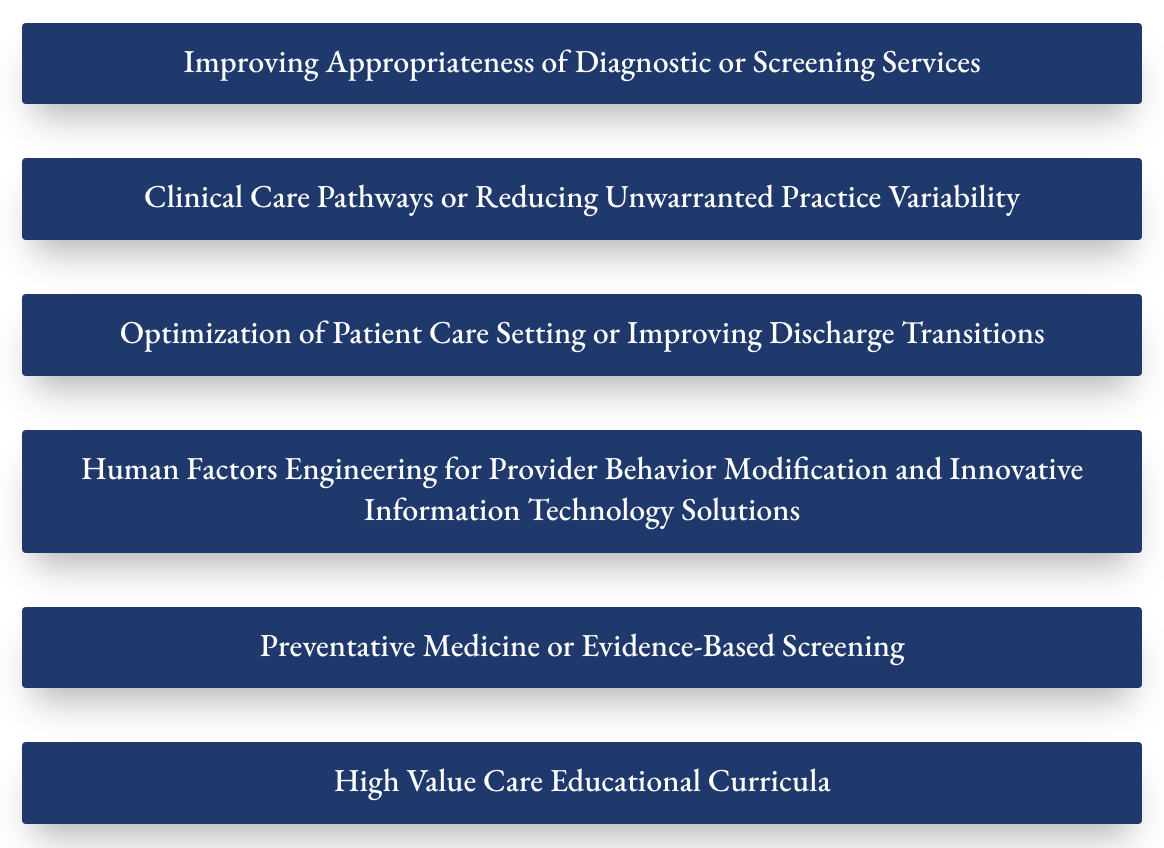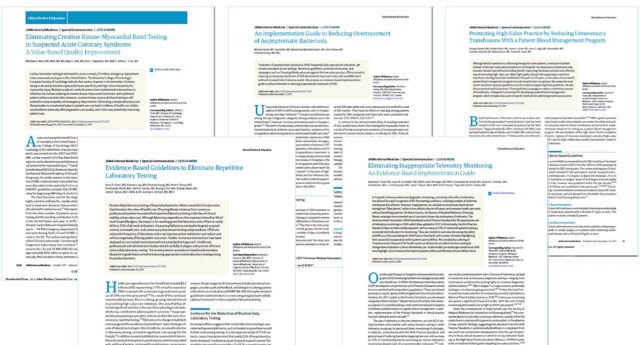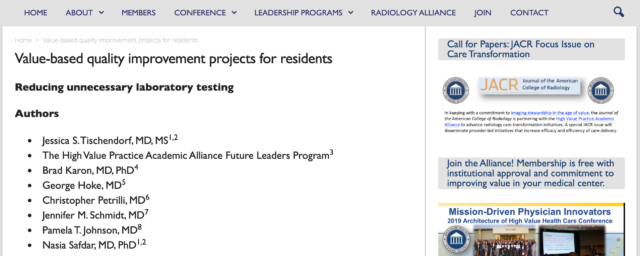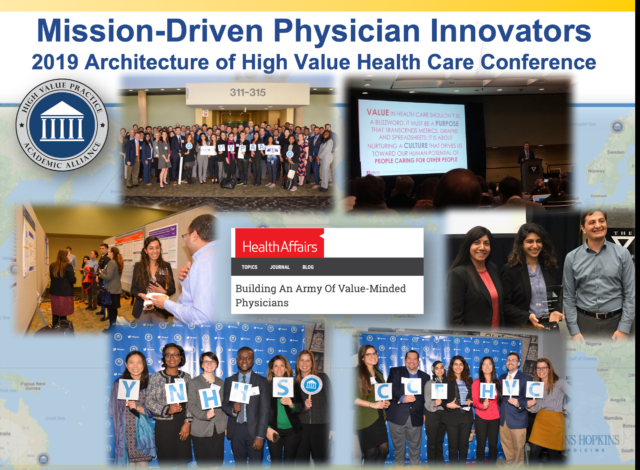From the 2019 HVPAA National Conference
Dr. Jaya Kanduri (Beth Israel Deaconess Medical Center), Dr. Andrew Silapaswan (Beth Israel Deaconess Medical Center), Dr. Ryan Eid (Beth Israel Deaconess Medical Center), Dr. Niloo Latifi (Beth Israel Deaconess Medical Center), Dr. Tara Skorupa (Beth Israel Deaconess Medical Center), Dr. Robert Stuver (Beth Israel Deaconess Medical Center), Dr. Molly Brett (Beth Israel Deaconess Medical Center), Dr. Rebecca Glassman (Beth Israel Deaconess Medical Center), Dr. Kelly Graham (Beth Israel Deaconess Medical Center)
Background
The hospital discharge transitional care period is a vulnerable and costly time for patients and the healthcare system. Poorly coordinated post-discharge care poses significant risk for adverse events and unplanned readmissions. It is estimated that 19.6% of Medicare fee-for-service discharges result in re-hospitalization within 30 days, costing the healthcare system $44 billion each year. Analyses at our institution revealed that only 55% of Medicare patients discharged home have a PCP appointment scheduled within 14 days of discharge, and only 44% of these patients are seen within this timeframe. The Center for Medicare and Medicaid Services (CMS) Transitional Care Management (TCM) services were designed to identify acute issues in Medicare patients within 48 hours after discharge, ensure timely outpatient follow-up is established within 7-14 days, and help improve transitions in care. TCM services have also shown to be associated with reduced mortality and total Medicare costs.
Objective
We aim to implement the standard TCM protocol at our hospital-based resident-faculty primary care clinic, including a post-discharge phone call within 48 hours after discharge and timely follow-up within 7-14 days. Through this intervention, we aim to identify and assess acute symptoms and barriers to post-discharge care, and identify potential medication errors. We will assess our intervention by measuring follow-up rates within 7 and 14 days of discharge, and 30-day re-hospitalization rates. We hypothesize that our intervention will improve these outcomes.
Methods
A descriptive analysis of data collected from a three-week pilot at HCA, with implementation of the TCM protocol for Medicare patients discharged from BIDMC to home.
Results
59 Medicare patients who were discharged from BIDMC were called within 48 hours after hospital discharge. 46/59 patients were reached after 1-2 calls. Phone calls lasted an average of 7 minutes. It took an average of 4 minutes to update the medication list in the electronic medical record. 35% of patients did not have an appointment scheduled with their PCP at the time of discharge. Of the patients who had an appointment scheduled, 20% had an appointment greater than 14 days after discharge, 53% had an appointment within 7-14 days after discharge, and 20% had an appointment within 1-6 days after discharge. 33.3% of patients with previously scheduled appointments had concerns regarding their ability to make the appointment. 30% of patients were found to have correctable medication errors and 30% had transitional care or other safety issues identified at their follow-up appointment. During the TCM intervention period, there was a 78% keep rate for 7-day follow-up visits, a 70% keep rate for 14-day follow-up visits, and an overall keep rate of 73.7% for appointments within 14 days. 9 patients or 15.3% were re-hospitalized within 30-days after their index hospitalization.
Conclusions
Post-discharge phone calls have a positive impact on facilitating care in the transitional period for moderate and high complexity Medicare patients. Our intervention improved the scheduled follow-up and keep rate of appointments within 14 days, as compared to the practice average over the past year. Based on our time studies, we would recommend an additional 0.2 full-time staff equivalents of support to sustain this intervention.
Clinical Implications
This initiative has demonstrated a positive impact on establishing close follow-up, identifying medication errors, and closing gaps in care. Next steps include wider-scale implementation of TCM services to all eligible Medicare discharges at our institution.





